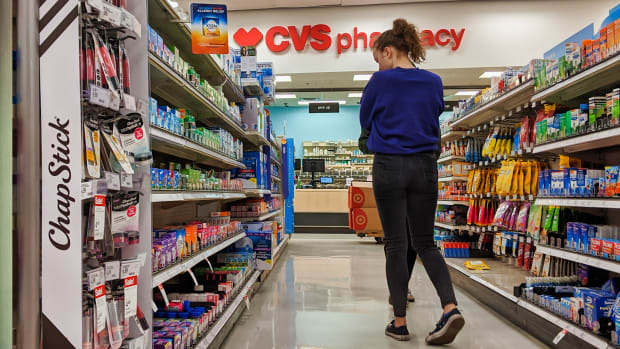It seems like every major technology company wants to disrupt healthcare. It's easy to see why as the United States spends nearly 18% of its gross domestic product (GDP) on healthcare. And, as the U.S. population ages that number should keep rising.
"National health spending is projected to grow at an average annual rate of 5.4 percent for 2019-28 and to reach $6.2 trillion by 2028," according to the U.S. government. "...Because national health expenditures are projected to grow 1.1 percentage points faster than gross domestic product per year on average over 2019–28, the health share of the economy is projected to rise from 17.7% in 2018 to 19.7% in 2028."
That's a stunning amount of money in a field where few, if any, Americans like how the system works now. Health insurance, going to the doctor, picking up prescriptions -- the entire system is full of pain points that seem ripe for fixing.
The problem -- and it's a very big one -- is that the healthcare establishment both has trouble changing due to its sheer size and does not want to change because the current system has been lucrative. It's a powerful wall of inertia that has led to high-profile healthcare disruption failures by Amazon (AMZN) and by the seeming dream team of Alphabet (GOOG), Berkshire Hathaway (BRK.B), and Amazon.
Quietly, or at least as quiet as you can be when making multibillion-dollar deals, CVS (CVS) has put together a variety of assets that could reshape healthcare from within.

Shutterstock
CVS Owns a Full Suite of Healthcare Products
CVS has been on a long, slow journey to transform itself into a healthcare company that arguably started with its decision to stop selling cigarettes back in 2014. That may seem like an obvious move as the company pivoted its business model, but it was one the company estimated would cost it $2 billion that year.
The chain has also added Minute Clinics -- walk-in clinics staffed by doctors and/or nurses that provide basic medical care -- to over 1,000 of its locagtions.
"We have expanded services to include diagnosis and treatment of minor illnesses, injuries and skin conditions; administration of vaccinations, injections, health screenings and physicals; and monitoring for chronic conditions," the company shared on its website.
And, in additon to these steps, CVS also bought health insurance company Aetna in 2018. That was the first time the company used bold language in describing its healthcare aspirations.
"By delivering the combined capabilities of our two leading organizations, we will transform the consumer health experience and build healthier communities through a new innovative health care model that is local, easier to use, less expensive and puts consumers at the center of their care,” CEO Larry J. Merlo said in a press release..
Now, with its latest purchase, CVS may have the final piece of the puzzle to succeed where Amazon, Google, and Berkshire-Hathaway failed.
CVS Can Now Actually Change Healthcare
Instead of creating something new, CVS has acquired all the pieces it needs to disrupt healthcare from the inside. It's latest $8 billion purchase, Signify, gives it access to 10,000 doctors, nurse practitioners, and physicians assistants that offer home visits and what that company called "value-based care."
In 2022, "Signify Health's clinicians expect to connect with nearly 2.5 million unique members in the home, both in-person and virtually, and on average they spend 2.5 times longer with a patient in the home than providers spend in the average primary care office visit," CVS shared in a press release.
After the in-home visit, the Signify medical professional directs the patient to any needed follow-up care.
"Signify Health's mission is to build trusted relationships to make people healthier by using actionable intelligence to understand what's really impacting outcomes and cost today," said Kyle Armbrester, CEO of Signify Health.
CVS now essentially controls a large part of routine medical care for its patients. That allows it to build in efficiencies, incentivize preventative care, and simplify the whole process. That's what Amazon, Google, and Berkshire wanted to do, but those companies tried to topple what already existed.
In CVS's case, it has taken over the establishment by becoming the establishment which should allow the company to make meaningful improvements to a flawed system.







